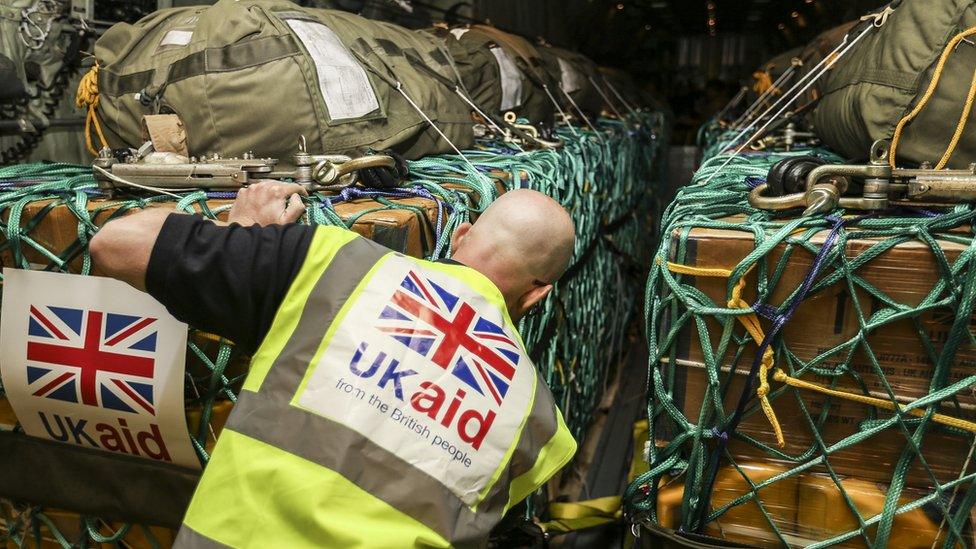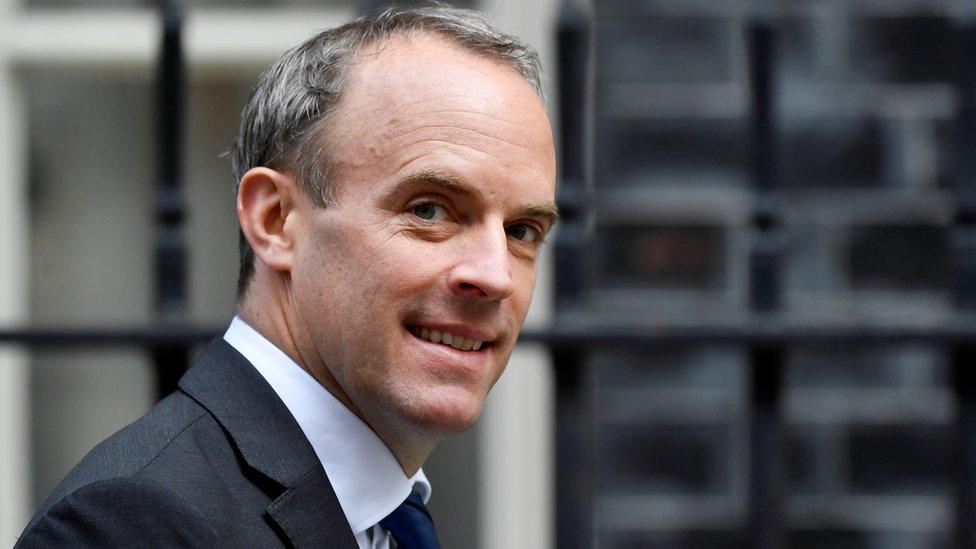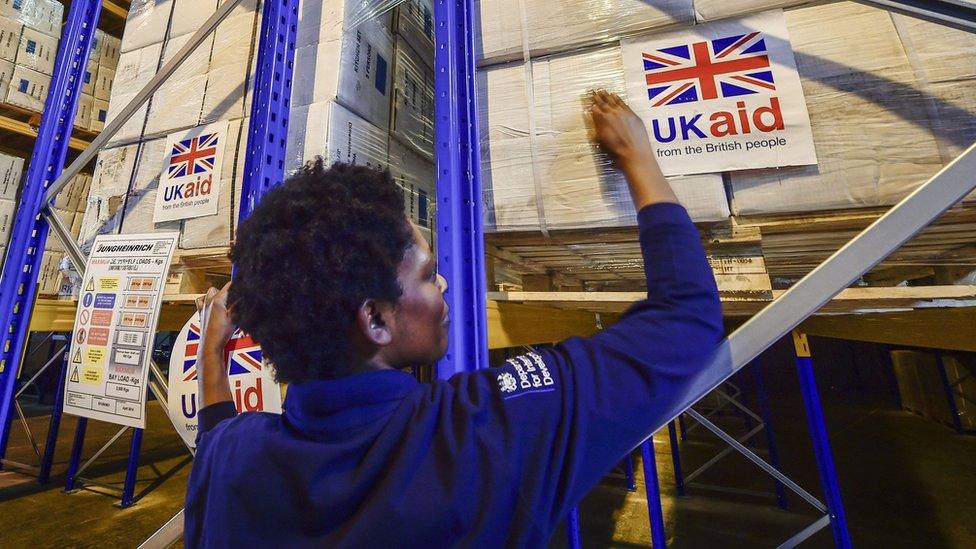Foreign aid: Government decision to cut budget 'unlawful', says peer
- Published

The government's decision to cut foreign aid without passing new legislation has been called unlawful by an ex-director of public prosecutions.
Lord Macdonald of River Glaven said No 10 acted outside the law when it ditched its policy of spending 0.7% of national income on aid.
His formal legal opinion was commissioned by senior Tory MPs campaigning to reverse the aid cut.
The advice says No 10's decision could be tested in court via judicial review.
However, the Foreign, Commonwealth & Development Office said the government had acted in accordance with the International Development Act 2015 - a piece of legislation that enshrines the 0.7% target in law - and remained a world-leading aid donor, spending £10bn on aid this year.
Last autumn, the government said it would not meet the 0.7% target in the coming financial year and cut spending to just 0.5% of national income - a move that would save about £4bn a year.
Chancellor Rishi Sunak claimed the cut was needed to save money during the pandemic, and would be "temporary".
But opponents claimed the decision was politically motivated and designed to attract voters in so-called "red wall" constituencies held by Conservatives in the north of England.
Labour's Preet Kaur Gill said cutting the aid budget would "strip life-saving support from millions of people leaving them to die".
She called on the government to put the change to a vote in Parliament, adding: "Failure to do so will diminish Britain's claim to be a global force for good and weaken our credibility and ability to defend the rule of law around the world."
Although the 0.7% is enshrined in law, ministers have claimed the legislation allows them to miss the target, just so long as they explain to parliament why they have done so.
Leading barristers
But Lord Macdonald's legal advice - which was first reported by the Sunday Times - disagrees and says the law does not give Foreign Secretary Dominic Raab any right to change the 0.7% target, which is different from missing it.
The crossbench peer, who was previously affiliated with the Liberal Democrats, is one of the best known names in British legal circles of the past 25 years.
As Ken McDonald, he was a co-founder of London-based Matrix Chambers with other leading lawyers at the start of this century, including Tony Blair's wife Cherie Booth. The newly-established barristers' chambers specialised in a number of high-profile human rights cases., external
He later became the first defence lawyer to be appointed to the role of director of public prosecutions.
The current advice is issued by Matrix Chambers and states: "The Secretary of State's decision is unlawful, not because of a (mere) failure to meet the 0.7% GNI target, but because the secretary of state has proceeded on the erroneous assumption that he has some power to alter the target itself."
It adds: "The illegality of the…decision is clear: the secretary of state proceeded on the erroneous assumption that he was free to establish a "target" for official development assistance which is below 0.7% GNI.
"In truth, no such discretion was open to him. For that reason, his decision is arguably ultra vires the 2015 Act."

Lord Macdonald's legal advice says the law does not give Foreign Secretary Dominic Raab (pictured) any right to change the 0.7% aid target
Andrew Mitchell, a former international development secretary, is urging the government to put the change to the aid target up for a House of Commons vote.
The Conservative MP said: "This legal opinion, finding that the government's decision is 'unlawful' and that the government's 'illegality is clear', is not unexpected.
"The foreign secretary told the Commons that his own legal advice required a change in the legislation, in order to change the 0.7% target. That's why I have been urging ministers to address this in parliament.
"I still believe that it is not too late to change course, before the start of the new financial year in April."
Baroness Sugg, the former international development minister who quit her role over the cut to the aid target, said: "Britain, as a force for good, sets global standards and defends the rules based international system.
"Legal opinion like this risks undermining our credibility on the world stage at the very moment we need to strike trade deals, negotiate communiqués and agree ambitious legally binding climate targets."
Oxfam GB's chief executive Danny Sriskandarajah said: "The decision was clearly immoral, now it appears to have been unlawful as well."
The Foreign, Commonwealth & Development Office insisted the government had acted in accordance with the International Development Act - which explicitly envisaged circumstances when the 0.7% target was not met.
It added the government had sought legal advice throughout the process and remained a world-leading donor, spending £10bn on aid this year.
A statement from the FCDO said: "The seismic impact of the pandemic on the UK economy has forced us to take tough but necessary decisions, including temporarily reducing the overall amount we spend on aid.
"The UK government has acted in accordance with the International Development Act 2015 throughout this process."
- Published25 November 2020

- Published24 November 2020

- Published6 March 2021
